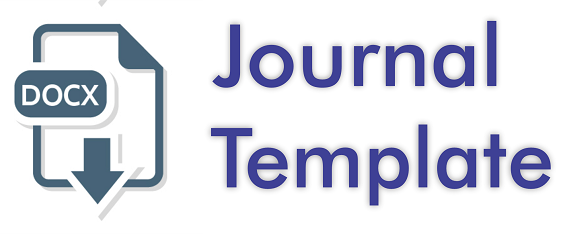Strategi Bersaing PT. BPRS Carana Kiat Andalas dengan Pendekatan Analisis SWOT
DOI:
https://doi.org/10.59107/ri.v3i2.92Keywords:
Competitive Strategy, SWOT Analysis, PT. BPRS Carana Kiat AndalasAbstract
This study aims to determine effective strategies for PT. BPRS Carana Kiat Andalas in facing competition among microfinance institutions in the Padang Luar Bukittinggi area using a SWOT analysis approach. The research method used is qualitative field research, with data collected through interviews and documentation. SWOT analysis is employed to examine the bank’s internal strengths and weaknesses as well as external opportunities and threats. Currently, the bank applies strategies such as excellent customer service, fast response to client needs, and competitive margin rates. Based on the SWOT analysis matrix, several strategies are proposed: (1) Strengths-Opportunities (SO) Strategy: market penetration and expanding service types according to customer needs; (2) Weaknesses-Opportunities (WO) Strategy: improving human resource competence, increasing capital, enhancing technology, expanding financing distribution, and diversifying services; (3) Strengths-Threats (ST) Strategy: implementing effective and continuous promotion, strengthening customer loyalty through proactive service, adjusting margins based on customer capability, and strategic location selection; (4) Weaknesses-Threats (WT) Strategy: maximizing profits and applying differentiation in determining margin levels. These strategies are expected to help PT. BPRS Carana Kiat Andalas remain competitive, expand its market reach, and respond more effectively to challenges in the dynamic microfinance environment.
Downloads
References
Achta Pratama, F. (2022). Analisis Peran Pendidikan Vokasi Dalam Pengembangan Industri Halal di Indonesia. Risalah Iqtisadiyah: Journal of Sharia Economics, 1(1), 1–7. https://doi.org/10.59107/ri.v1i1.22
Bundo, M., & Pratama, F. A. (2024). Analysis of Sharia-Based Hotels on Sustainable Tourism in West Sumatera Indonesia. Journal of Islamic Economics and Finance Studies, 5(1), 173–191. https://doi.org/10.47700/jiefes.v5i1.7378
Efendi, E. C., & Mansur, Y. (2022). Analisis Strategi Pemasaran Produk Deposito Mudharabah Pada PT. BPRS Carana Kiat Andalas KC Padang Panjang. IJMA (Indonesian Journal of Management and Accounting, 3(1), 54–66. https://doi.org/10.14421/EkBis.2022.6.1.1555
Mariko, S., Prawira, A., & Nasfi. (2022). Sharia Bank Health Management Strategy (Study On PT. BPRS Carana Kiat Andalas). International Journal of Indonesian Business Review, 1(1), 61–69.
Muslim, M., Amdahurifky, A., & Pratama, F. A. (2025). Pemberdayaan Remaja Masjid Melalui Peningkatan Kapasitas Leadership Dengan Metode Service-Learning Di Kecamatan Koto Tangah. INTEGRITAS : Jurnal Pengabdian. https://doi.org/10.36841/integritas.v9i1.6224
Muslim, M., M. Wahyudi, Eka Putra, D., & Pratama, F. A. (2025). Optimasi Penjualan Produk Melalui Pelatihan Digital Marketing Bagi UMKM Halal Di Kecamatan Koto Tangah. INTEGRITAS : Jurnal Pengabdian. https://doi.org/10.36841/integritas.v9i1.6246
Pratama, F. A. (2022). Relevansi Pengetahuan Dengan Pencegahan Covid-19 di Masyarakat. Jurnal Ekologi, Masyarakat Dan Sains, 3(1), 21–26. https://doi.org/10.55448/ems.v3i1.41
Pratama, F. A., & Effendi, H. (2021). E-Learning Bebasis Wordpress Sebagai Alternatif Media Pembelajaran. 4(3), 466–475. https://doi.org/https://doi.org/10.23887/jp2.v4i3.41534
Pratama, F. A., & Giatman, M. (2021). Manajemen Kepemimpinan Kepala Sekolah dalam Membangun Kompetensi Guru. 7(1), 35–50. https://doi.org//https://doi.org/10.24090/jk.v1i1.530
Pratama, F. A., Wahyudi, M., Eka Putra, D., Muslim, M., & Effendi, H. (2023). Analysis of the Role of Vocational Education for the Halal Tourism Development in Indonesia. Edumaspul: Jurnal Pendidikan, 7(2), 6053–6068. https://doi.org/10.33487/edumaspul.v7i2.7585
Pratama, F. A., Yufa, N. A., & Abimayu, M. F. (2025). PENGEMBANGAN E-LEARNING BERBASIS SPIRITUAL UNTUK PELATIHAN DIGITAL MARKETING BAGI. Jurnal Dinamika Ekonomi Syariah, 12(1), 210–219. https://doi.org/https://doi.org/10.53429/jdes.v12i1.1355
Safitri, D., & Pratama, A. R. (2022). Analisis Strategi Personal Selling pada Produk Funding di PT. BPR Syariah Carana Kiat Andalas Cabang Payakumbuh. Jurnal Publikasi Ilmu Manajemen (JUPIMAN), 1(4), 244–259.
Sugiyono. (2019). Metode Penelitian kuantitatif kualitatif dan R&D (2019th ed.). Alfabeta.
Wahyudi, M., Fitri, R., Pratama, F. A., & Febrianto, R. (2024). The Sound Changes in the Minangkabau Language Spoken by Padangâ€TM s Ethnic Chinese. Journal of Innovation in Educational and Cultural Research, 5(1), 164–169. https://doi.org/10.46843/jiecr.v5i1.1106
Wahyuni, H., Rilianti, F. Y., Afiatika, A., Isyrahlia, Pratama, F. A., & M. Wahyudi. (2024). The Influence Of Social Media On Waqf Funding In BPW Ar Risalah. RISALAH IQTISADIYAH: Journal of Sharia Economics, 3(1), 18–25. https://doi.org/https://doi.org/10.59107/ri.v3i1.67
Downloads
Published
Issue
Section
License
Copyright (c) 2024 RISALAH IQTISADIYAH: Journal of Sharia Economics

This work is licensed under a Creative Commons Attribution 4.0 International License.
License
The non-commercial use of the article will be governed by the Creative Commons Attribution license as currently displayed on http://creativecommons.org/licenses/by/4.0/. This licence allows the user to distribute, remix, tweak, and build upon the licensed work, including for commercial purposes, as long as the original author is credited.
Author’s Warranties
The author warrants that the article is original, written by stated author/s, has not been published before, contains no unlawful statements, does not infringe the rights of others, is subject to copyright that is vested exclusively in the author and free of any third party rights, and that any necessary written permissions to quote from other sources have been obtained by the author/s.
User Rights
Under the Creative Commons Attribution license, the author(s) and users are free to share (copy, distribute and transmit the contribution).
Rights of Authors
Authors retain the following rights:
- copyright, and other proprietary rights relating to the article, such as patent rights,
- the right to use the substance of the article in future own works, including lectures and books,
- the right to reproduce the article for own purposes, provided the copies are not offered for sale,
- the right to self-archive the article.
Co-Authorship
If the article was prepared jointly with other authors, the signatory of this form warrants that he/she has been authorized by all co-authors to sign this agreement on their behalf, and agrees to inform his/her co-authors of the terms of this agreement.
Termination
This agreement can be terminated by the author or RISALAH IQTISADIYAH: JOURNAL OF SHARIA ECONOMICS upon two months’ notice where the other party has materially breached this agreement and failed to remedy such breach within a month of being given the terminating party’s notice requesting such breach to be remedied. No breach or violation of this agreement will cause this agreement or any license granted in it to terminate automatically or affect the definition of RISALAH IQTISADIYAH: JOURNAL OF SHARIA ECONOMICS.
Royalties
This agreement entitles the author to no royalties or other fees. To such extent as legally permissible, the author waives his or her right to collect royalties relative to the article in respect of any use of the article by RISALAH IQTISADIYAH: JOURNAL OF SHARIA ECONOMICS or its sublicensee.
Miscellaneous
RISALAH IQTISADIYAH: JOURNAL OF SHARIA ECONOMICS will publish the article (or have it published) in the Journal, if the article’s editorial process is successfully completed and RISALAH IQTISADIYAH: JOURNAL OF SHARIA ECONOMICS or its sublicensee has become obligated to have the article published. RISALAH IQTISADIYAH: JOURNAL OF SHARIA ECONOMICS may conform the article to a style of punctuation, spelling, capitalization and usage that it deems appropriate. The author acknowledges that the article may be published so that it will be publicly accessible and such access will be free of charge for the readers. RISALAH IQTISADIYAH: JOURNAL OF SHARIA ECONOMICS will be allowed to sublicense the rights that are licensed to it under this agreement.


.png)
.png)






